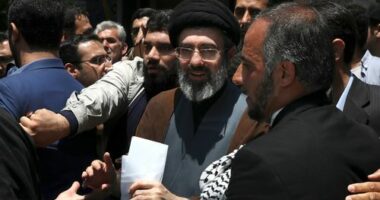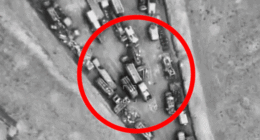Share this @internewscast.com
The current conditions in Gaza have rendered many roads completely impassable, significantly hindering the delivery of much-needed humanitarian aid, according to aid workers on the ground. The region is grappling with a severe crisis, and aid organizations are urging for an increased flow of assistance to address the escalating humanitarian needs.
Despite these pressing concerns, Israeli officials have dismissed claims of starvation in Gaza. Meanwhile, Oxfam’s efforts to provide relief have been stymied, with none of their aid trucks allowed entry so far this week, attributed to what has been described as “administrative obstructions,” according to Oxfam’s spokesperson, Goldsmith.
In a recent development, an Israeli security official indicated that the Rafah crossing might soon open to Gazan citizens, following the return of more Israeli bodies by a militant group. While Israel announced on Thursday that it was preparing for this reopening, the specifics remain unclear, particularly whether it will facilitate the movement of both people and aid.
But Israeli officials have denied that starvation is occurring in Gaza.
Goldsmith said no Oxfam trucks have been permitted to enter Gaza so far this week due to “administrative obstructions”.
However, after the militant group returned more Israeli bodies, an Israeli security official said preparations were underway to open Rafah to Gazan citizens.
Israel said on Thursday it was preparing for the reopening but it was not clear whether it would be opened only for the movement of people or also aid.
Aid priorities
Organisations are rushing to bring in hygiene products such as soap and menstrual products, gas for cooking, medical supplies and equipment and fuel to power medical facilities as well as other infrastructure.
“A lot of that infrastructure has been destroyed and people are relying, to a large extent, on water trucking and so that’s something that Oxfam has been providing for displaced communities,” she said.
Eighty years to rebuild
A report released by the UN Development Programme earlier this year estimated it could take 80 years to fully rebuild all of Gaza’s housing.
“I think that’s the major concern is that there’s still a lot that we don’t know and hasn’t been sort of worked out in terms of comprehensive settlement of this conflict,” Goldsmith said.
A fragile ceasefire
“The needs remain vast, and sustained access and funding are critical,” Dujarric said.
“People are still in disbelief that the nightmare they have faced over the last two years could actually finally be over,” she said.











